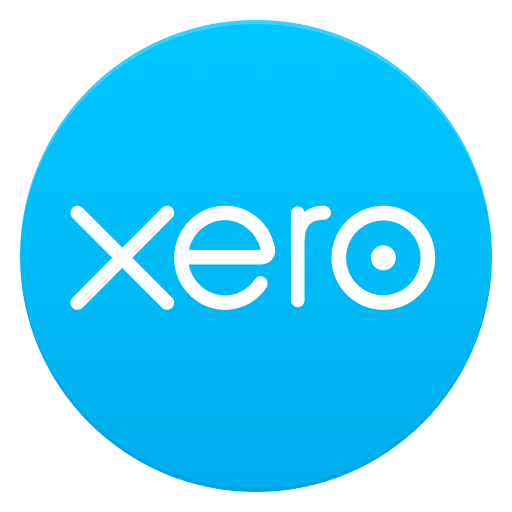
High-Value Clients vs. High-Volume Sales: What CPAs Recommend for Sustainable Growth
Every business faces a critical choice when it comes to growth: Should you chase a few high-value clients or aim for high-volume sales? It’s a classic dilemma, and CPAs often find themselves guiding business owners through this decision. Get it right, and your revenue stabilizes; get it wrong, and you could end up overworked with little profit to show for it.
Let’s break down the two approaches, their pros and cons, and what CPAs recommend for long-term financial sustainability.
High-Value Clients: The “Quality Over Quantity” Approach
High-value clients are the ones who bring in significant revenue per transaction. They demand premium service, but they’re often willing to pay for it. This model works exceptionally well for service-based businesses, consulting firms, and even CPA firms themselves.
Why CPAs Love This Model:
- Stronger profit margins: With fewer clients, operational costs stay lower while revenue remains high (Bragg, 2018).
- Deeper client relationships: CPAs can offer personalized financial strategies, which increases client retention.
- More stable revenue: Since these clients are invested in long-term relationships, cash flow is more predictable.
Industry Example:
Law firms and boutique financial advisory firms often adopt this model. Take Goldman Sachs’ Private Wealth Management division—it focuses on ultra-high-net-worth clients, ensuring premium advisory services while maintaining a lean client base (Mallaby, 2022).
The Downside:
- Client dependency: If one or two high-value clients leave, it can create major financial gaps.
- Higher service expectations: Premium clients expect premium attention, which can be resource-intensive.
Offshore Staffing Insight:
One way to maintain high-value relationships while managing workload is by leveraging offshore staffing. Many CPA firms hire offshore bookkeepers and accountants to handle routine tasks, freeing up senior staff to focus on strategic planning and client relationships. This allows firms to scale without compromising service quality or increasing overhead.
High-Volume Sales: The “Quantity Over Quality” Approach
This model focuses on selling to a larger number of clients at lower price points. Think of retail businesses, SaaS companies, or tax preparation firms during peak season. The goal is to bring in steady revenue through repeat transactions.
Why CPAs Recommend This Model:
- Consistent cash flow: With more clients, revenue is diversified and less dependent on any single source.
- Easier to scale: Digital products and automated services can be sold at scale with minimal overhead (Kotler & Keller, 2022).
- Broader market reach: A lower price point makes it easier to attract new customers.
Industry Example:
Companies like H&R Block thrive on high-volume sales. Their strategy involves handling thousands of tax returns efficiently while keeping costs low, allowing them to serve a broad customer base (Bryson, 2020).
The Downside:
- Thin profit margins: A high sales volume doesn’t always mean high profitability, especially if costs are not managed well.
- Client churn: There’s a constant need to attract new customers to replace those who leave.
- More administrative work: Managing a large customer base requires extensive back-office support.
Offshore Staffing Insight:
Many businesses using the high-volume model turn to offshore teams for customer support, bookkeeping, and data processing. For CPA firms handling thousands of tax returns, offshore accountants can handle the heavy lifting, allowing onshore teams to focus on higher-value advisory services.
Finding the Right Balance
CPAs don’t just recommend one model over the other—they help businesses find the right balance. The key is assessing your industry, client expectations, and operational capacity. Some firms create hybrid models, where high-value clients drive long-term stability while high-volume sales provide cash flow.
Industry Example:
Tesla operates a hybrid model—while they sell vehicles at a premium price (high-value), they also have high-volume sales from their solar energy and battery divisions, which ensure steady cash flow (Lutz, 2019).
For example, a CPA firm might offer exclusive CFO advisory services to a handful of high-value clients while maintaining a separate team to handle high-volume bookkeeping services for small businesses. Offshore staffing plays a crucial role in this balance, ensuring that the workload is distributed efficiently while maximizing profitability.
Final Thoughts: CPA-Backed Strategies for Sustainable Growth
Ultimately, sustainable growth is about profitability, not just revenue. Whether you choose high-value clients, high-volume sales, or a mix of both, the key is financial efficiency. Offshore staffing solutions provide an added advantage, allowing businesses to scale without excessive overhead.
So, before choosing your growth strategy, ask yourself: Are you optimizing your resources and focusing on the right clients? A CPA can help you find the answer—and the profits hidden within it.
Latest Posts
x
We empower CPA firms to grow, innovate, and lead. Beyond offshore staffing, we provide strategic marketing support to strengthen your brand, attract clients, and drive success.
Address Business
701 Tillery St #12, Austin, TX 78702, United States
Working Time
Mon - Fri: 3.00pm - 5.00am IST
To provide the best experiences, we use technologies like cookies to store and/or access device information. Consenting to these technologies will allow us to process data such as browsing behaviour or unique IDs on this site. Not consenting or withdrawing consent, may adversely affect certain features and functions.
Functional Always active
The technical storage or access is strictly necessary for the legitimate purpose of enabling the use of a specific service explicitly requested by the subscriber or user, or for the sole purpose of carrying out the transmission of a communication over an electronic communications network.
Preferences
The technical storage or access is necessary for the legitimate purpose of storing preferences that are not requested by the subscriber or user.
Statistics
The technical storage or access that is used exclusively for statistical purposes.
The technical storage or access that is used exclusively for anonymous statistical purposes. Without a subpoena, voluntary compliance on the part of your Internet Service Provider, or additional records from a third party, information stored or retrieved for this purpose alone cannot usually be used to identify you.
Marketing
The technical storage or access is required to create user profiles to send advertising, or to track the user on a website or across several websites for similar marketing purposes.



















